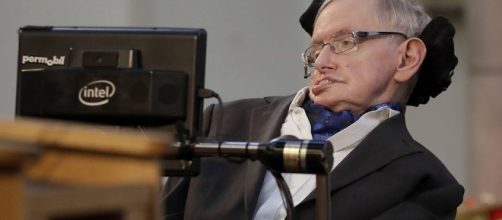On Sunday, as part of the 2017 Open Access Week, Cambridge made available for the first time Stephen Hawking’s doctoral thesis “Properties of expanding universe”. The thesis immediately obtained a huge success, being downloaded by almost 60,000 in less than 24 hours. This overload caused the Cambridge online repository, Apollo, to firstly slow down and then completely crash, probably a relief for Professor Hawking, who commented the release stating he is pleased that so many people were interested in accessing his work, but he hopes that they will not be disappointed after actually reading it.
Fancy a bit of light reading? We've put #StephenHawking's 1966 PhD thesis online to celebrate #openaccessweek https://t.co/bakmB4kRtl
— Cambridge University (@Cambridge_Uni) October 23, 2017
Properties of expanding universe
Stephen Hawking wrote his PhD thesis in 1996 at 24 years old. The research deals with the implications and consequences of the expansion of the universe, concluding that galaxies cannot be formed through the growth of initially small perturbations. In 1963, Hawking was diagnosed with motor neurone disease or ALS and given two years to live. In spite of a deteriorating physical condition, he is now almost fully paralyzed, professor Hawking is one of the most recognized scientists of all times.
Between 1979 and 2009, Hawking was the Lucasian Professor of Mathematics at the University of Cambridge, one of the most prestigious Chairs worldwide, previously held by Newton himself. In 1988, he published “A brief history of time”, in which he treats the structure, origin, development and eventual fate of the universe in profane terms, understandable for everybody. The book became a widely known best-seller, translated into 35 languages and selling one copy for every 750 men, woman and child in the world.
Today, over fifty years later that first diagnosis, professor Hawking holds numerous honorary degrees, he continues his research, and he teaches lectures all around the world. Hawking is Honorary Fellow of the Royal Society of Arts, the lifetime member of the Pontifical Academy of Sciences and he won the Presidential Medal of Freedom, the US highest civilian award.
He is also planning to go to space one day, dream that could soon come true, as Richard Branson has offered him a place on his Virgin Galactic spacecraft.
The importance of Open Access
Every month, Apollo used to receive hundreds of requests for access to the complete thesis by Stephen Hawking, making “Properties of expanding universe” the most requested item in the catalogue. Now, by making it available Open Access everybody from every country can freely download the full research. Hawking commented the event saying that his hope is to inspire people all over the world to look up at the stars, not down at their feet, to wonder about our place in the universe, and to try to make sense of the cosmos.
Apollo’s catalogue consists of over 15,000 research articles, 10,000 images, 2,400 theses, and 1,000 datasets. Works include original manuscripts from Isaac Newton, Overall, in 2017, over 1 million items were downloaded from the database, from almost every country in the world. Arthur Smith, deputy head of scholarly communication, said open-access research is critical for major breakthroughs in all areas of science, medicine and technology. However, even though PhD theses contain a vast amount of research findings only waiting to be used, this information “is often locked away from view and scrutiny”, he adds.
The hope is that the release of Stephen Hawking’s thesis will encourage other scholars to follow the path.
Especially, Cambridge’s alumni and former academics, among whom there are 98 Nobel Prize winners. Furthermore, from October on, all postgraduate students will have to deposit an online version of their thesis, requirement that will hopefully encourage them to make their work open access too.
Professor Hawking himself recognizes the importance of free access to not just his own, but all research across the spectrum of human understanding performed by the great enquiring minds of the present and the past. Each generation, he says, has to build on the work of those who came before them. Therefore, just as he, as a student, was inspired by the works of Newton, Maxwell and Einstein, it is his and his peers' duty to leave a legacy for the academics of the future.


